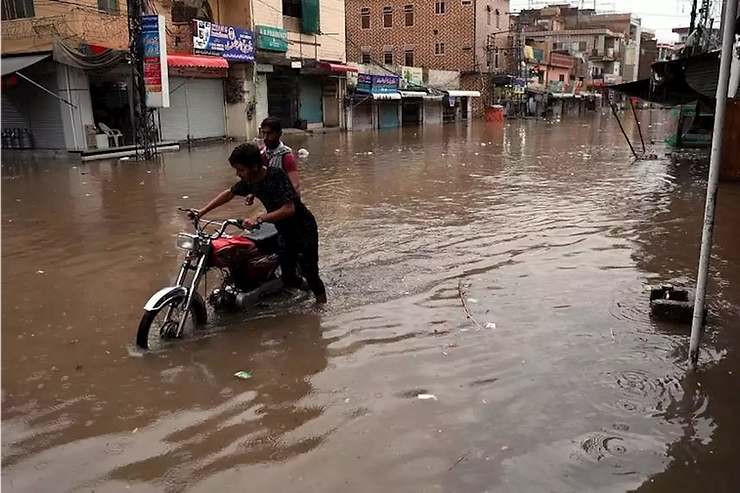By: Max Liu
In Pakistan’s largest city, Karachi, heavy loads of monsoon rain are causing frequent floods and infrastructural damage. Businesses, buildings, and public services are closing. Since Saturday, at least 15 people have drowned in these floods.
Pakistan goes through an annual monsoon season from June through August, and experts say the rains have only increased in both frequency and intensity due to global climate trends.
“Climate change is a threat. We are a coastal city. It’s happening so fast and we will bear the brunt,” said Afia Salam, a climate change reporter in Karachi.
This year’s monsoon has been extremely harsh. Monsoon rains have killed at least 282 people over the past five weeks, many of them women and children, the National Disaster Management Authority announced on Thursday. Infrastructure including bridges, highways, and roads have been damaged, disrupting traffic and upending the lives of millions across the city.
Because people do not have fresh drinking water, they have to drink from the dirty, flood water. This brings a deadly disease called Cholera. Cholera is an acute diarrheal illness caused by infection of the intestine with Vibrio cholerae bacteria. People can get sick when they swallow food or water contaminated with cholera bacteria. The infection is often mild or without symptoms, but can sometimes be severe and life-threatening.
According to Sophia Saifi, a reporter with CNN stated, “A deadly cholera outbreak linked to contaminated drinking water infects thousands of people in central Pakistan as the country grapples with a water crisis exacerbated by a brutal heat wave in South Asia.”











